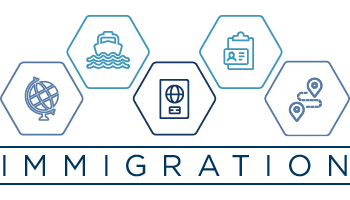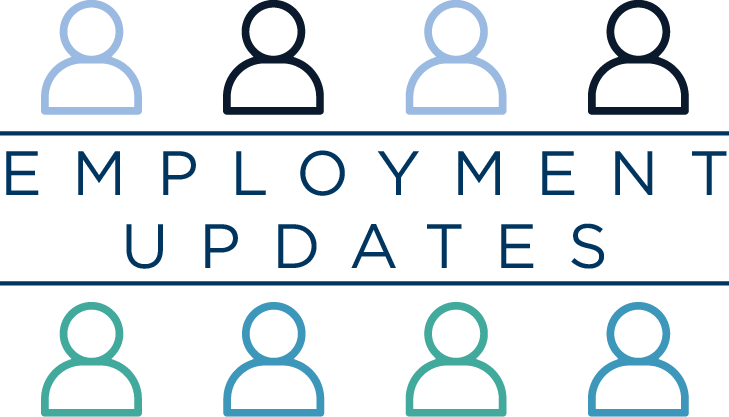DOL’s Protection for Farmworkers Rule Temporarily Enjoined
Background and Overview
On August 26, 2024, a federal court in Georgia issued a ruling enjoining the U.S. Department of Labor (DOL) regarding its implementation of the rule Improving Protections for Workers in Temporary Agricultural Employment in the United States (“Final Rule”). The case is styled as State of Kansas, et al., v. United States Department of Labor, et al., 2:24-cv-00076 (S.D. Ga. August 26, 2024) and was brought by seventeen states and two agricultural entities. The rule was issued by the DOL on April 29, 2024, and took effect on June 28, 2024. HBS previously discussed it here.
The plaintiffs, which include the states of Kansas, Georgia, South Carolina, Arkansas, Florida, Idaho, Indiana, Iowa, Louisiana, Missouri, Montana, Nebraska, North Dakota, Oklahoma, Tennessee, Texas, and Virginia, along with Miles Berry Farm and the Georgia Fruit and Vegetable Growers Association, sought a preliminary injunction to halt the implementation of the Final Rule in Georgia Federal Court. They argue that the rule illegally grants collective bargaining rights to agricultural migrant workers employed under the H-2A visa program, which they claim is beyond the authority of the DOL and contradicts existing federal law.
The H-2A Visa Program
The H-2A visa program, established by the Immigration Reform and Control Act (IRCA) of 1986, allows U.S. agricultural employers to hire foreign workers for temporary agricultural labor. Under the program, employers must first obtain a temporary employment certification (TEC) from the DOL, which certifies that (1) there are not enough U.S. workers able, willing, and qualified to perform the labor; and (2) the employment of foreign workers will not adversely affect the wages and working conditions of similarly employed U.S. workers.
The process involves the state workforce agency of the state where the employer is located, and several federal agencies, including the DOL, Department of Homeland Security (USCIS/DHS), and Department of State (DOS), with the DOL playing a crucial role in certifying the need for foreign workers and ensuring that the employment of these workers does not harm domestic workers.
The Final Rule
After the required notice and comment period, the DOL issued the Final Rule and it went into effect on June 28, 2024. The Final Rule introduces significant changes to the H-2A visa program. The rule establishes new protections for H-2A workers, including the right to engage in concerted activity for mutual aid or protection concerning wages or working conditions, protections against retaliation for such activities, and the right to designate a representative in investigatory interviews that could lead to disciplinary action, among other things. As described more fully below, such protections have never been available to agriculture workers on the federal level.
The DOL justified the Final Rule by citing pervasive violations of the H-2A program’s requirements and the unique vulnerabilities of H-2A workers, including their dependence on a single employer, geographic isolation, and the temporary nature of their work. The DOL argued that these vulnerabilities make H-2A workers susceptible to exploitation and retaliation, necessitating the additional protections provided by the Final Rule.
Plaintiffs’ Arguments
The plaintiffs argue that the DOL overstepped its authority by enacting the Final Rule, which they claim illegally grants collective bargaining rights to H-2A workers—a right explicitly excluded for agricultural workers under the National Labor Relations Act (NLRA). The NLRA provides collective bargaining rights to employees but specifically excludes agricultural workers from this protection. The plaintiffs contend that by affording these rights to H-2A workers, the DOL is creating new law, which is beyond its regulatory authority and violates the intent of Congress as expressed in the NLRA.
Additionally, the plaintiffs argue that the Final Rule violates the Major Questions Doctrine, a legal principle requiring clear congressional authorization for agency actions of vast economic and political significance. They assert that the DOL’s rulemaking under the H-2A program does not have such clear authorization from Congress.
Court’s Analysis and Decision
The court granted the plaintiffs’ motion for a preliminary injunction, halting the implementation of the Final Rule within the plaintiff states and for the agricultural entities involved. In granting the injunction, the court noted “The Final Rule is an attempt by the DOL to play the sorcerer. The DOL may assist Congress, but may not become Congress.” The court’s analysis can be summed up as follows.
- Likelihood of Success on the Merits: The court found that the plaintiffs are likely to succeed on their claim that the Final Rule exceeds the DOL’s statutory authority as it conflicts with the NLRA. While the DOL has some regulatory authority under the IRCA to ensure that the employment of H-2A workers does not adversely affect U.S. workers, the court found that this authority does not extend to creating new rights, such as collective bargaining, which Congress has explicitly excluded for agricultural workers under the NLRA.
- Irreparable Harm: The court agreed with the plaintiffs that the implementation of the Final Rule would cause irreparable harm, particularly in the form of financial costs that the states and agricultural entities would incur in complying with the new regulations. Additionally, the court recognized the potential harm to the efficient operation of farms, which could face increased costs and disruptions due to the new rule.
- Balance of Equities and Public Interest: The court determined that the balance of equities favored the plaintiffs, as the potential harm to them outweighed any harm to the DOL from delaying the implementation of the rule. Furthermore, the court noted that there is a substantial public interest in ensuring that federal agencies do not exceed their statutory authority and that the rule of law is upheld.
- Scope of the Injunction: The court declined to issue a nationwide injunction, instead limiting the injunction to the plaintiff states and agricultural entities involved in the case. The court reasoned that a nationwide injunction was unnecessary and would unduly interfere with the ability of other courts to adjudicate similar issues.
Implications for Employers
For employers participating in the H-2A program who are located in one of the seventeen states party to the lawsuit, the court’s ruling provides temporary relief from the additional regulatory burdens imposed by the Final Rule. The decision underscores the limits of federal agencies’ authority to create new rights and regulations without clear congressional authorization. Employers should be aware, however, that this is only a preliminary ruling, and the case may continue to evolve as it progresses through the courts. The DOL will likely challenge this decision.
Employers should continue to monitor developments in this case and others like it, as changes to the H-2A program and other labor regulations could have significant implications for their operations. In the meantime, employers should ensure compliance with existing H-2A program requirements and remain vigilant about potential legal challenges to new regulations.
Conclusion
This case represents a significant legal challenge to the DOL’s authority to regulate the H-2A visa program. The court’s decision to grant a preliminary injunction reflects the ongoing tension between federal regulatory agencies and the limits of their authority as defined by Congress. Employers affected by the H-2A program should carefully consider the implications of this case and be prepared for further legal and regulatory developments in this area.
If you would like more information about how this decision affects your business, or if your business is in the jurisdiction covered by the court’s ruling, please contact Misty Wilson Borkowski, Joe Kraska, or any member of Hall Booth Smith’s Immigration or Labor and Employment departments.
Disclaimer
This material is provided for informational purposes only. It is not intended to constitute legal advice nor does it create a client-lawyer relationship between Hall Booth Smith, P.C. and any recipient. Recipients should consult with counsel before taking any actions based on the information contained within this material. This material may be considered attorney advertising in some jurisdictions. Prior results do not guarantee a similar outcome.
Blog Overview
About the Authors
Joseph M. Kraska
Attorney at Law | Little Rock Office
T: 501.435.3205
E: jkraska@hallboothsmith.com
Joseph M. Kraska specializes in management side labor and employment matters. He has represented clients in collective bargaining, RC petitions, unfair labor practices charges, labor arbitration, OSHA compliance matters, and federal and state employment discrimination matters, as well as providing general employment advice.
Misty Wilson Borkowski
Partner | Little Rock Office
T: 501.503.4479
E: mborkowski@hallboothsmith.com
Misty Wilson Borkowski is a Partner in HBS’s Little Rock office with an immigration practice, which focuses on employment-based immigration matters, both temporary visas, as well as permanent residency. Her practice focuses on H-2A Visas, DOL Audits, E-1/E-2 Treaty Trader/Investor Visas, L-1A/L-1B Intracompany-Transferee Visas, and H-1B Visas.






Leave a comment
You must be logged in to post a comment.